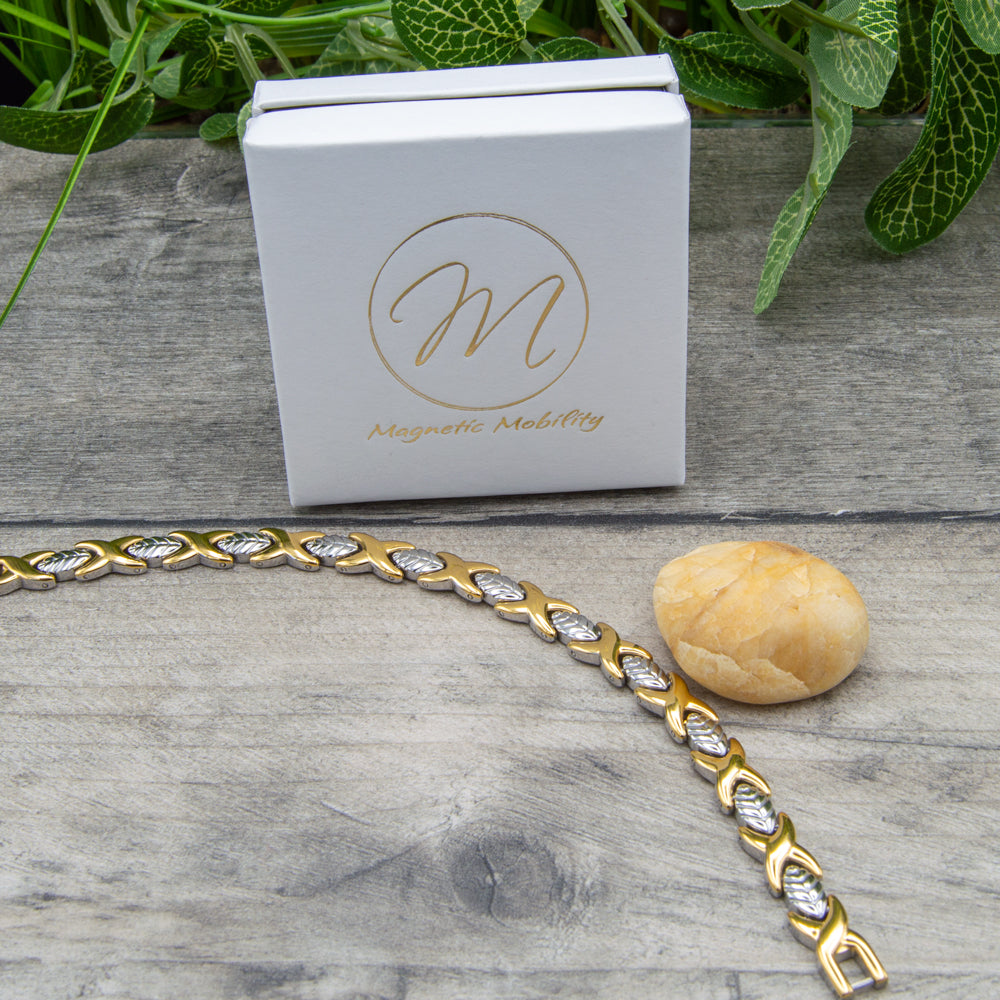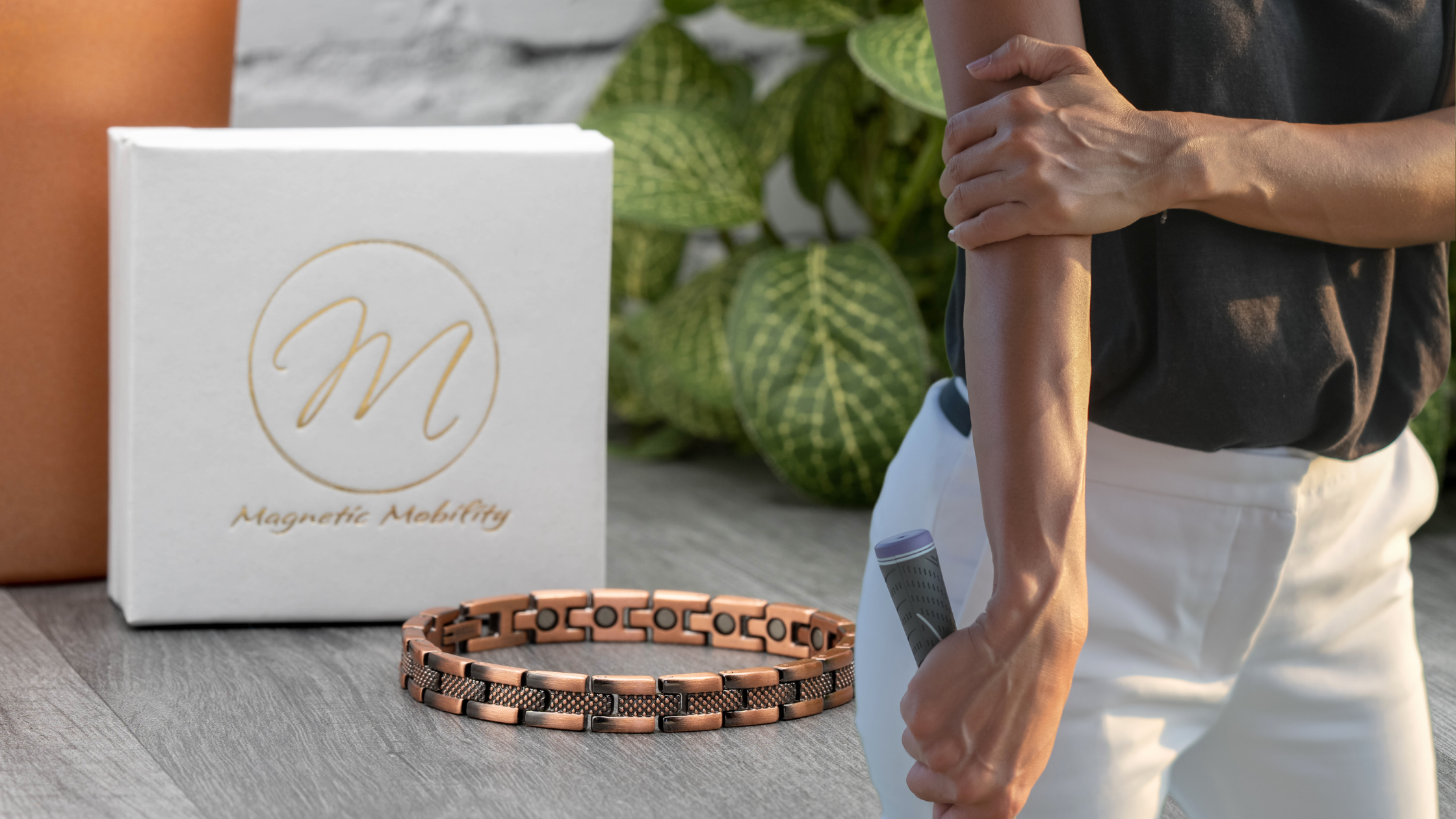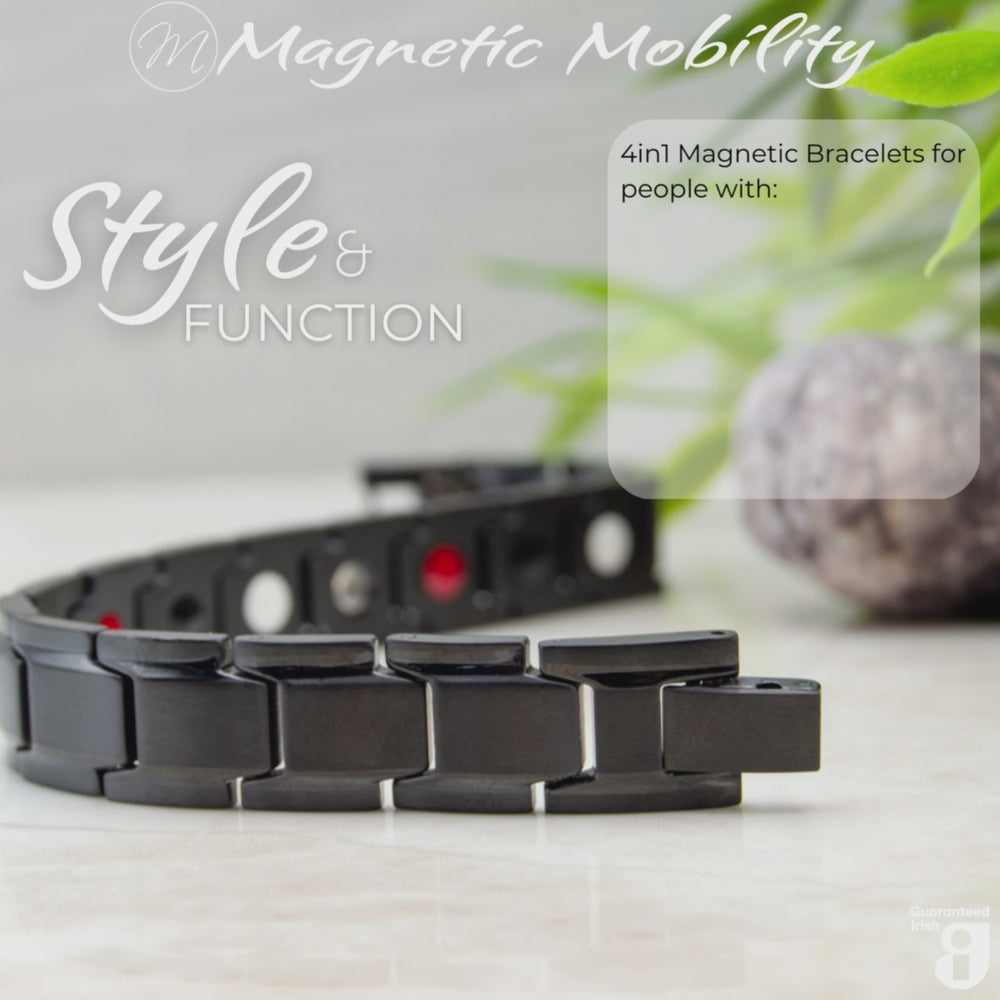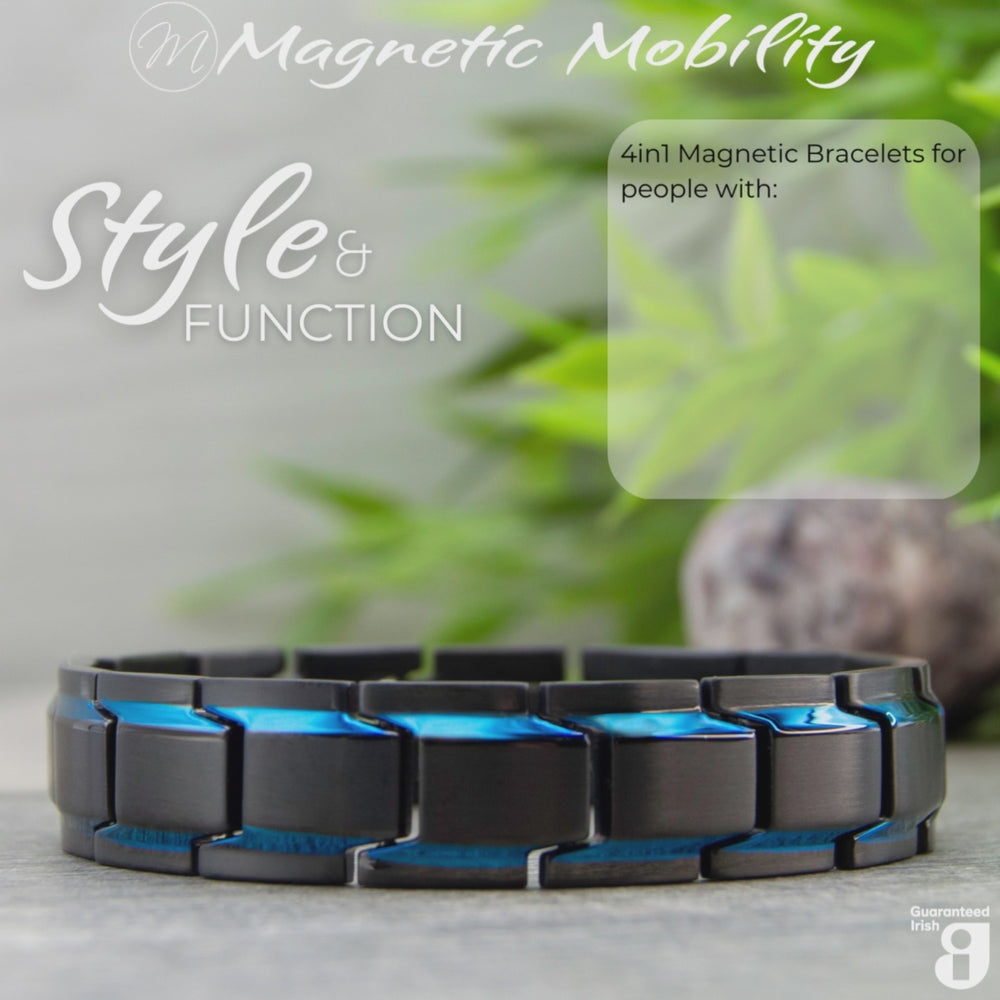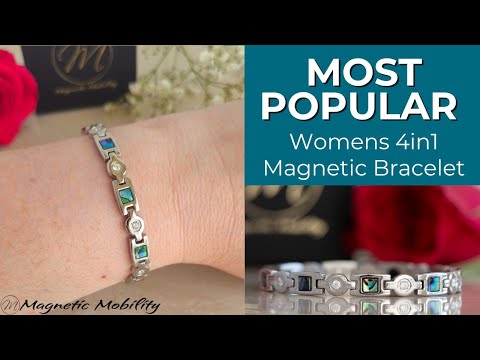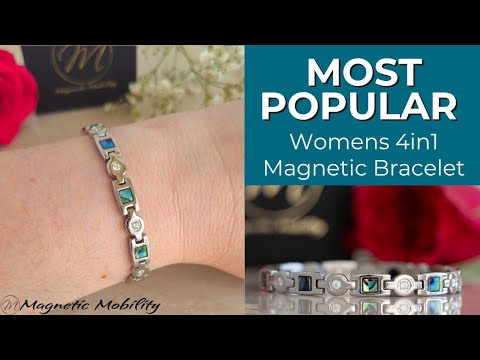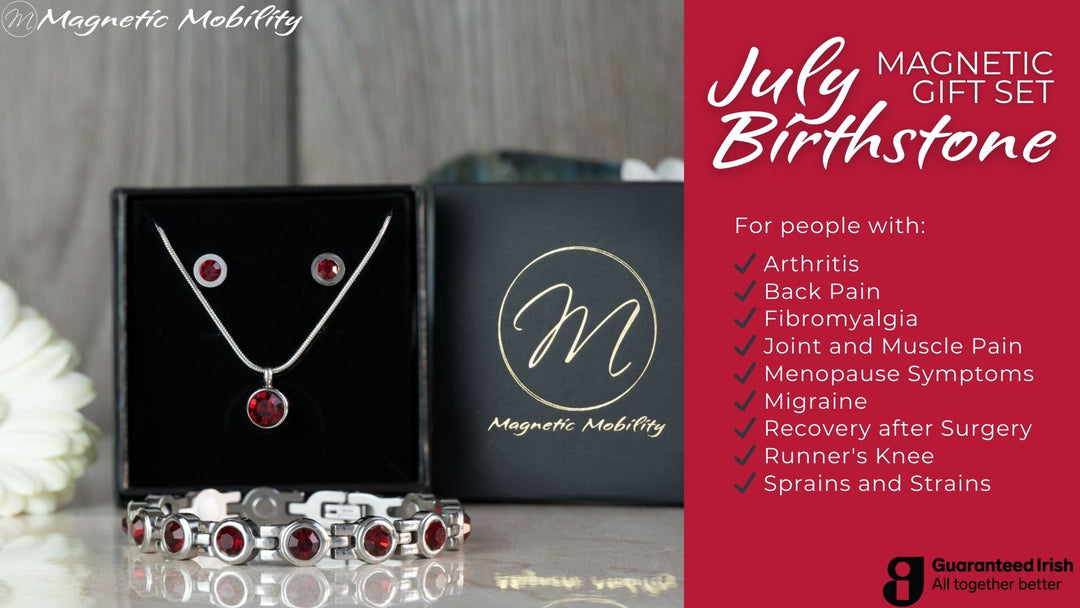Unlock Your Healing Potential: 5 Essential Tips for Post-Surgery Recovery
Recovery from surgery is a crucial period that requires special care and attention. After undergoing a surgical procedure, the body needs time and support to heal effectively. One essential element in post-surgery recovery is following professional advice diligently to prevent complications and ensure optimal healing. Adequate rest is also vital, as it allows the body to recuperate and repair itself. Incorporating a nutritious diet, rich in proteins, vitamins, and minerals, can further aid in the healing process. Staying hydrated is key to overall health and can support the body's recovery journey. Another potential addition to your wellness routine is magnetic therapy, with magnetic bracelets offering both comfort and style during recovery. If you're looking to speed recovery after surgery, these tips, along with magnetic bracelets, could be beneficial for your recovery journey.

Introduction: Post-Surgery Recovery Journey
Importance of Proper Care in Recovery from Surgery
Proper care after surgery is not just beneficial—it's essential for a smooth and speedy recovery. The body has undergone trauma, and how you treat it in the subsequent weeks can significantly influence your healing trajectory. Ignoring the advice of healthcare professionals or pushing yourself too quickly can lead to setbacks, such as infections or wound complications. On the other hand, giving your body the care it needs can speed recovery after surgery and reduce the risk of long-term issues. It's important to view the recovery process as an investment in your future well-being. By taking the right steps, such as following post-operative instructions, resting adequately, and paying attention to nutrition and hydration, you're setting the stage for a stronger and quicker return to everyday activities.

Steps to Speed Recovery after Surgery
Accelerating your recovery from surgery requires a proactive approach to your health. First and foremost, ensure that you're giving your body enough rest. Sleep is when the body's repair work kicks into high gear, so don't skimp on it. Secondly, keep moving within the limits prescribed by your healthcare provider; gentle movements can prevent stiffness and improve circulation. Nutrition is another pillar; eating foods rich in protein, vitamins, and minerals will bolster the body's repair mechanisms. Additionally, keep yourself hydrated, as water plays a key role in every cellular process, including healing. Finally, consider complementary therapies that may support your recovery, such as magnetic therapy. Magnetic bracelets are a popular choice for many, offering a non-invasive option to help enhance the healing process. Remember, each step you take is a step towards regaining your health and vitality.

Professional Guidance and Rest: The Foundation of Healing
Adhering to Healthcare Provider's Instructions
Following your healthcare provider's instructions is not just a recommendation—it's a critical component of your recovery after surgery. These instructions are tailored to your specific situation and are designed to protect your body as it heals. Whether it's about wound care, medication schedules, or the do's and don'ts of physical activity, these guidelines are grounded in years of medical knowledge and practice. Strict adherence minimises the risk of post-operative complications, such as infections or excessive scarring. It also ensures that the recovery process moves forward without unnecessary interruptions. Remember that your healthcare team's goal is to see you recover as quickly and safely as possible, so their advice is invaluable. Trusting their expertise and following their guidance closely can significantly speed recovery after surgery.

The Role of Sleep and Rest in Recovery
Sleep and rest are the body's natural way of healing and rejuvenating. After surgery, the need for rest becomes even more pronounced, as the body diverts its energy towards repairing tissues and fighting off potential infections. Quality sleep boosts the immune system and releases growth hormones, which are vital for tissue repair. It is during deep sleep that the body performs most of its healing work. Rest, on the other hand, doesn't necessarily mean sleep; it also means giving the body a break from physical activity and stress. It's about allowing yourself to relax and recover, which can sometimes be as simple as reading a book or listening to music. Striking the right balance between sleep and restful wakefulness is key to a swift recovery from surgery. By prioritising rest, you give your body the best chance to heal effectively.

Nutrition and Hydration: Fuelling Your Body for Healing
Importance of a Nutritious Diet in Post-Surgery Recovery
A nutritious diet is a cornerstone of effective post-surgery recovery. Your body needs a variety of nutrients to rebuild tissue and regain strength. Proteins play a critical role in repairing muscle and skin, while vitamins and minerals support the immune system and speed up wound healing. Iron, vitamin C, and zinc, in particular, are essential for these processes. It's important to eat balanced meals that include lean meats, fish, beans, eggs, and an abundance of fruits and vegetables. These foods provide the building blocks your body requires to heal from the inside out. Additionally, a nutritious diet can help you manage your energy levels and maintain a healthy weight, which is often a challenge during periods of reduced activity. Remember, what you put into your body directly impacts how well and how fast you recover.

Staying Hydrated for Health and Healing
Hydration is a fundamental aspect of health, particularly during the recovery from surgery. Water facilitates countless bodily functions, including the transportation of nutrients to cells and the removal of waste. When you're well-hydrated, your circulation improves, and so does the delivery of essential healing elements to the surgical site. Moreover, adequate hydration keeps the skin elastic and can help to prevent the dryness that sometimes accompanies healing wounds. It's advisable to drink plenty of water throughout the day, but remember that hydration isn't just about water intake. Clear broths, herbal teas, and foods with high water content, like fruits and vegetables, also contribute to your overall fluid balance. Keeping your body hydrated is a straightforward yet powerful way to support your recovery journey.

Exploring Additional Healing Aids: The Power of Magnetic Bracelets
Introduction to Magnetic Therapy for Recovery Support
Magnetic therapy is an alternative treatment that has been used for centuries to promote healing and alleviate discomfort. This therapy involves the use of magnets to improve blood flow and reduce inflammation, potentially speeding up the recovery process. Magnetic bracelets, in particular, combine the benefits of magnetic therapy with convenience and style. They are designed to be worn close to the skin, where they can exert their effects continuously throughout the day.
Scientific research has shown promising results in support of magnetic therapy. For instance, a 2008 study demonstrated that applying strong magnets next to blood vessels led to increased blood flow, reduced swelling, and greater relaxation in subjects. This ability to decrease inflammation can be particularly beneficial for those who experience pain due to swelling in the joints, such as individuals with arthritis or fibromyalgia (1). While scientific opinions still vary regarding the overall efficacy of magnetic therapy, many recovering from surgery or managing chronic conditions find it a supportive complement to traditional medical treatments. Magnetic bracelets might offer an additional layer of assistance as you navigate the healing process after surgery.

How Magnetic Bracelets Can Enhance Your Recovery Journey
Magnetic bracelets are not just a fashion statement; they're an effective tool in your recovery arsenal. Our 4in1 magnetic bracelets combine four powerful elements to support your wellness journey: Neodymium magnets, FIR (Far Infrared) elements, germanium, and negative ions. The Neodymium magnets produce magnetic fields that penetrate the skin, helping to reduce pain and swelling in the affected area, leading to a more comfortable and faster recovery.
The FIR elements work to promote better circulation and warmth, supporting muscle relaxation and joint comfort. Germanium helps balance the body’s energy, contributing to overall well-being. Negative ions aid in releasing serotonin, which improves mood and promotes better sleep, an essential part of the healing process. This unique combination makes our bracelets an effective, non-invasive option for those seeking additional support without the need for medication. Choose a bracelet that’s comfortable to wear for extended periods and suits your personal style, so it becomes a seamless part of your daily routine.
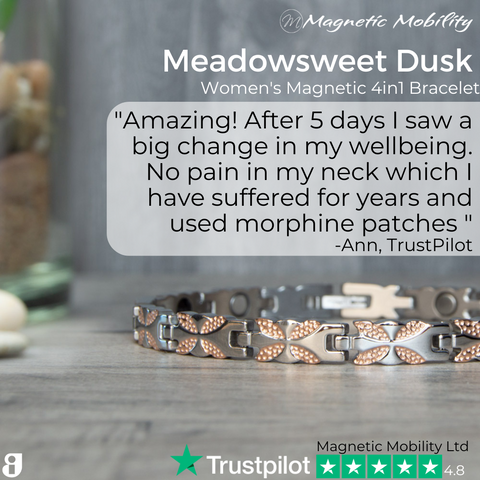
Final Thoughts: Embracing a Holistic Recovery Approach
Recovery as a Step-by-Step Process
Recovery from surgery is not a race; it's a step-by-step journey that requires patience and care. Each positive action you take, from following professional medical advice to getting adequate rest, contributes to your overall healing. It's essential to view recovery as a cumulative process where small daily improvements add up to significant progress over time. Including a nutritious diet and proper hydration in your routine supports your body's natural healing mechanisms. Additionally, exploring supplementary aids like magnetic bracelets can offer comfort and may enhance your recovery. Remember, every individual's path to recovery is unique, and what works for one person may not work for another. It's about finding a combination of practices that work best for you and sticking with them. By embracing a holistic approach and taking it one day at a time, you set yourself up for a successful and healthy recovery.

Encouraging Reader Experiences and Tips Sharing
We understand that the journey to recovery can be a personal and sometimes challenging experience. That's why we encourage you to share your stories and tips for recovery after surgery. By opening up about your experiences, you can provide support and insight to others who are going through similar challenges. Whether it's a particular strategy that helped you speed recovery after surgery or simply words of encouragement, your contributions are valuable. We invite you to comment below with your thoughts or advice on post-surgery recovery. Additionally, if you've tried magnetic bracelets or other alternative aids, let us know how they've impacted your healing process. Your shared experiences not only build a community of support but also enrich the pool of knowledge that can help others on their path to recovery.




